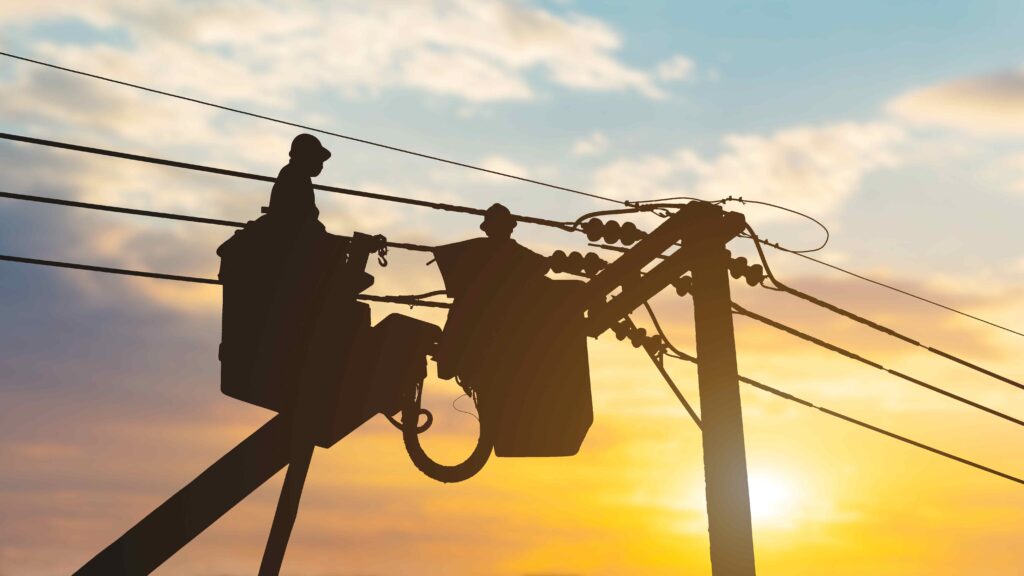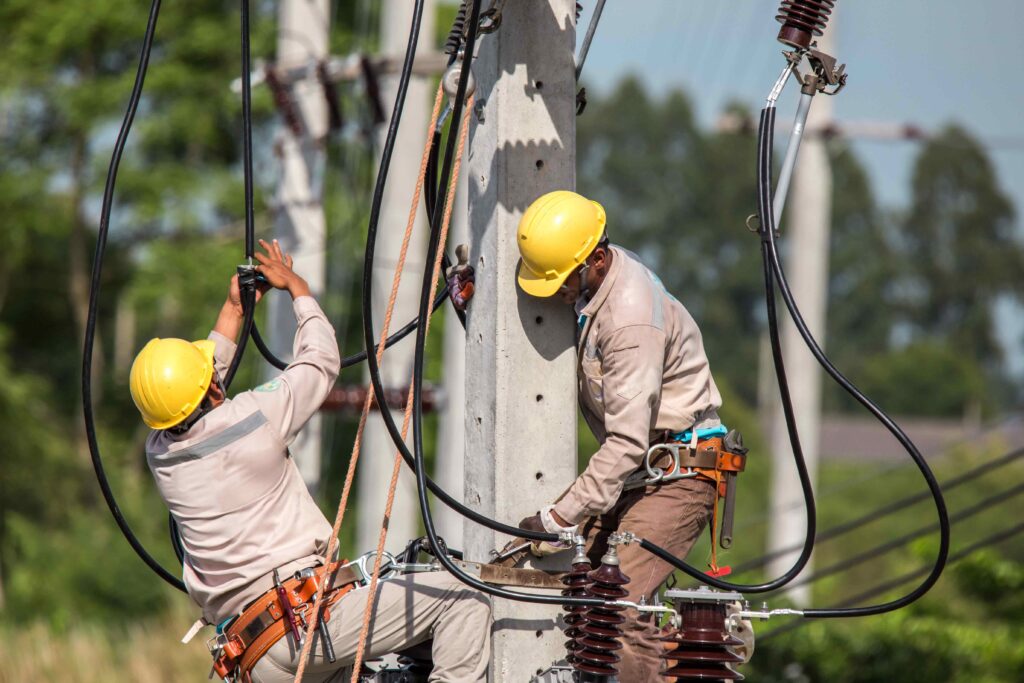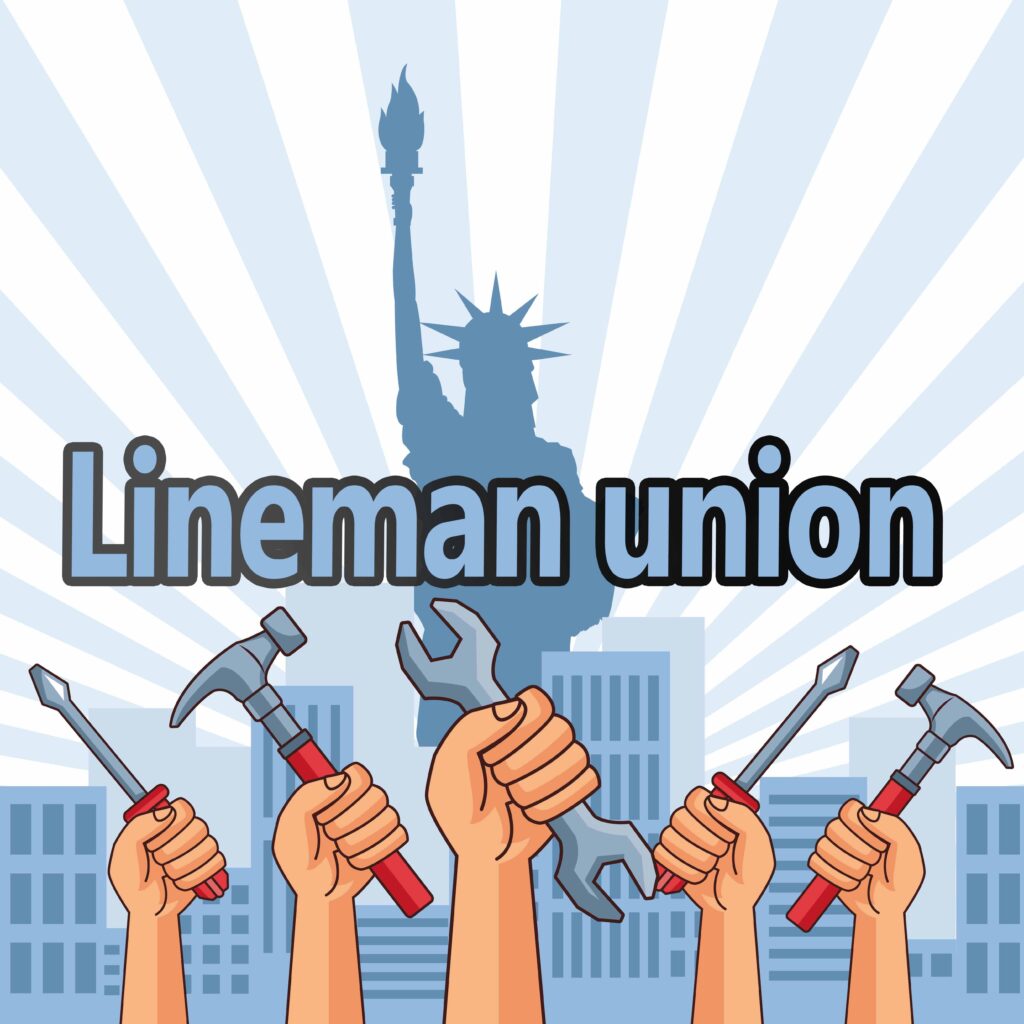A Lineman Union represents the interests of electrical line workers. It negotiates wages, working conditions, and safety standards for its members.
Electrical line workers, who ensure our lights stay on and power flows without interruption, find solidarity and support in a Lineman Union. These unions play a pivotal role in advocating for the rights and benefits of their members, often providing training programs to help maintain the highest level of skill and safety in a high-risk profession.
They serve as a critical interface between the workforce and the employers, striving for fair labor practices and equitable compensation. Embracing a culture of brotherhood, Lineman Unions contribute to the well-being of those who work tirelessly above and below ground, connecting communities with essential energy services. Their collective bargaining power is fundamental in maintaining a workforce that is not only proficient but also protected in its demanding tasks.

Credit: ibewyes.org
History Of Lineman Unions
Electrical linemen have a proud and storied history, one deeply rooted in the solidarity of labor unions. These professionals have faced both high altitudes and high voltages to connect communities. The story of their collective efforts for safety, fair wages, and better working conditions is both inspiring and instructive. Here, we explore the origins and key milestones that mark the history of lineman unions.
Origins Of Lineman Union
The birth of lineman unions dates back to the late 19th century. Electricity was blooming as a new industry. Yet, working conditions were fraught with peril. Linesmen recognized the power of unity, leading to the creation of their own specialized unions. Early groups like the International Brotherhood of Electrical Workers (IBEW) emerged to advocate for safer working conditions and fair pay.
Key Milestones In Union Formation
- 1891: The first lineman union, the IBEW, is founded.
- 1900s: Rapid industry expansion calls for more skilled linemen and formal apprenticeships.
- 1935: The National Labor Relations Act provides legal backing for union organization and collective bargaining.
- 1960s-70s: Safety standards rise with the Occupational Safety and Health Act.
- Today: Unions remain crucial in advocating for linemen’s rights and safety.

Roles And Responsibilities
Labor unions play a critical role in the workforce. The Lineman Union stands out for safeguarding the interests of its members. This union works tirelessly to ensure the well-being and advancement of linemen across the nation. With a focus on ensuring worker safety and negotiating fair work conditions, the Union’s influence is pivotal for linemen everywhere.
Ensuring Worker Safety
Safety comes first for every lineman on the job. The Lineman Union takes this to heart. It sets stringent safety standards to safeguard its members. From advocating for proper gear to organizing comprehensive safety programs, the Union is always at the forefront.
- Education and Training: Ensures members have up-to-date knowledge of safety practices.
- Equipment Checks: Regular assessments to maintain the integrity of safety gear.
- Emergency Response: Prepares linemen for unforeseen accidents with proper response protocols.
Negotiating Work Conditions
The Lineman Union does not only safeguard physical well-being. It also enhances work conditions for linemen. Conditions include wages, hours, and benefits. Members rely on the Union to represent their voice during bargaining.
| Aspect | Negotiation Goals |
|---|---|
| Wages | Competitive salaries; regular raises |
| Hours | Reasonable shifts; overtime compensation |
| Benefits | Healthcare; retirement plans; leave policies |
Training And Certification
Joining a Lineman Union sets the foundation for a secure career. Here we break down the essential training and certification steps required to shine in this electric field.
Apprenticeship Programs
Real-world experience pairs with classroom learning to shape skilled linemen. Union apprenticeships stand out for their quality training and vast opportunities.
- Earn while you learn
- Four years of on-the-job training
- Classroom instruction for skill enhancement
- Safety protocols are a top priority
Certification Requirements
Post apprenticeship, certification is the next big step. A certified lineman has verified skills to maintain power lines safely and effectively. Check out these key requirements:
| Requirement | Description |
|---|---|
| Education | High school diploma or GED |
| Hours | Minimum of 7,000 hours of field experience |
| Exam | Passing a comprehensive trade exam |
| Continuous Learning | Ongoing training to keep skills sharp |
Challenges Faced
Challenges Faced by members of Lineman Unions are numerous, demanding constant adaptability and resilience. From the ever-present danger on the job to keeping up with rapid technology shifts, lineman work is far from straightforward.
Workplace Hazards
Linemen are no strangers to risks. They often work at great heights, with heavy equipment, and amidst high voltage. This creates a suite of workplace hazards that can lead to injury or worse. To illustrate, here are some specific dangers:
- Falls from heights: Safety gear is essential.
- Electrical shocks: Proper insulation of tools and gloves can save lives.
- Weighing physical demands: Linemen need strength and endurance.
Technological Advancements Impact
Technological advancements shape the lineman’s work, mostly for the better. Yet, these changes can also be challenging as they demand new skills. Take a look at these impacts:
| Tech Aspect | Impact |
|---|---|
| Drones | Survey lines without climbing |
| Smart Grids | Require computer skills |
| Augmented Reality (AR) | Helps visualize complex systems |
As these examples show, linemen must continuously learn to use new tools and technologies. This need to keep pace can be a significant hurdle but is essential for safety and efficiency.
Advocacy And Political Influence
Advocacy and political influence form the cornerstone of any successful union. The Lineman Union is no exception. It works tirelessly to represent its members, championing their rights and ensuring their voices reach the corridors of power. Unions navigate political landscapes to secure labor-friendly legislation and improved working conditions.
Legislative Initiatives
Key legislative battles can define the future for linemen across the nation. Here, the union shines, advocating for laws that ensure safety, fair pay, and job security. Their strategic lobbying efforts aim to influence decision-makers, pushing for changes that affect workers every day.
- Safe Workplace Bills: Seeking laws to make job sites safer.
- Apprenticeship Programs: Promoting training opportunities.
- Retirement Security: Ensuring pensions remain robust.
Community Outreach Efforts
The Lineman Union extends its advocacy beyond the political sphere through community outreach. Their commitment to building strong community ties is evident in the various programs they initiate. These efforts foster public support which is crucial for advancing their cause.
| Program | Impact |
|---|---|
| Education Workshops | Informing the public about linemen’s roles. |
| Charity Events | Supporting local causes and spreading goodwill. |
| Volunteer Drives | Engaging members in meaningful community service. |
Impact On Industry
The Lineman Union has left an indelible mark on the industry. Their impact extends across vital areas such as safety and infrastructure. These unions ensure that linemen across the country work under the best conditions. This leads to improved efficiency and advancements in the electrical and utility sectors. Let’s dive into how the Lineman Union influences industry standards and development.
Standardization Of Safety Practices
Safety is paramount in the high-risk electrical field. Thanks to Lineman Unions, there are uniform safety protocols. They champion rigorous training and procedures. This protects workers and maintains high-quality service delivery.
- Personal Protective Equipment (PPE): Mandatory for all linemen, reducing on-site injuries.
- Regular Training: Ensures linemen stay updated on the latest safety standards.
- Adherence to Regulations: Unions work to certify all safety measures meet local and federal guidelines.
These standards minimize accidents and enhance worker confidence, bolstering industry reputation.
Influencing Infrastructure Development
Unions actively shape the growth of electrical infrastructure. They invest in cutting-edge technology and push for innovative projects. This paves the way for more resilient energy systems.
| Initiative | Impact |
|---|---|
| Advocacy for Modernization | Leads to improved and sustainable electric grids. |
| Training on New Technologies | Prepares linemen for future industry demands. |
| Collaboration with Policymakers | Influences regulations that support infrastructure growth. |
The Lineman Union’s proactive stance drives industry advancement and stability.
International Perspectives
Exploring International Perspectives unveils the diverse landscape of Lineman Unions around the globe. This section offers insights into how different countries approach labor practices in the electrical trade and the shared challenges they face. Peer across borders to learn, compare, and understand the lineman profession on an international scale.
Comparison With Global Labor Practices
In the realm of electrical line work, each nation’s labor system presents unique characteristics. To comprehend these variances, it’s useful to view them through the lens of collective bargaining rights, wage standards, and safety regulations. Let’s delve into a comparison that will showcase these critical differences.
| Country | Unionization Rate | Average Wage | Safety Regulations |
|---|---|---|---|
| USA | High | Varies by state | Strict (OSHA) |
| Germany | High | Standardized nationally | Stringent (DGUV) |
| Brazil | Medium | Lower than global North | Moderate |
Common Issues Faced Globally
The voice of lineman unions echoes internationally with concerns that transcend borders. Predominantly, issues related to fair wages, job security, and safe working conditions are at the forefront. Enumerated here are the challenges that resonate among lineman workers worldwide:
- Health Risks: A hazardous work environment leads to heightened injury rates.
- Wages: Disparity in pay, often dependent on location and economic status.
- Training: Inconsistent standards for skill development and certifications.
- Job Security: Fluctuating demand for labor and contractual stability.
Future Outlook
The landscape for lineman unions is shifting with time. Bold changes and advancements shape a new era. This looks at what unions might see ahead. Expect innovations, policy shifts, and new energy sources.
Adapting To Renewable Energy Trends
Renewable energy breathes fresh air into industry practices. Lineman unions prepare for this wave. They train members in solar, wind, and other green technologies. Jobs in renewables are rising fast.
- Solar power installations: Unions offer new training.
- Wind farm projects: A growing field needs skilled linesmen.
- Energy storage systems: Critical for grid stability and a new skill area.
Adapting ensures linemen remain vital in an eco-conscious future. They can work on projects that light up cities and save the planet.
Potential Changes In Union Dynamics
Union dynamics are not static. Shifts in workforce, technology, and laws bring new challenges and opportunities.
Diversity and Inclusivity: Unions embrace wider membership. They want members from all backgrounds.
Collaboration: Unions may partner with tech firms. They want to advance labor tech tools.
Laws may change too. These changes could reshape union roles in bargaining and advocacy. Unions must stay alert.
Members’ needs change. Unions adapt. They provide resources and support. Unions make sure workers thrive through shifts.

Frequently Asked Questions On Lineman Union
What Is The Best Union For Lineman?
The International Brotherhood of Electrical Workers (IBEW) is widely considered the best union for linemen, offering comprehensive support, robust benefits, and extensive training opportunities.
Is Being A Union Lineman Worth It?
Being a union lineman can be rewarding with strong benefits, job security, and competitive pay. It involves physical work and considerable risk, but comprehensive training and camaraderie are significant advantages.
How Do You Become A Union Lineman In Texas?
To become a union lineman in Texas, obtain a high school diploma or GED, enroll in an apprenticeship through the International Brotherhood of Electrical Workers (IBEW), complete required training and coursework, and gain sufficient on-the-job experience.
What Does A Lineman Do In Ibew?
An IBEW lineman installs and repairs electrical power systems and telecommunication lines. They ensure reliable infrastructure for utility services, working both above and underground.
Conclusion
Joining the Lineman Union offers a community and a suite of benefits crucial for a lineman’s career. Solidarity within this brotherhood often leads to improved safety, job security, and skill development. Ultimately, aligning with a union can be the empowering step an electric lineman takes toward a resilient and fulfilling professional journey.


